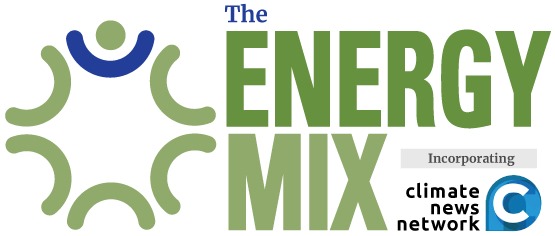Biden Exceeds $100B in Clean Energy Funding, Backs New Deal to End Oil and Gas Export Financing
With the weeks ticking down before he leaves the White House, U.S. President Joe Biden’s administration is picking up the pace on clean energy financing, while getting serious about blocking tens of billions of dollars in export financing for oil and gas that could instead be diverted to the energy transition.
The White House has surpassed the US$100 billion mark in financing for clean energy projects under the landmark Inflation Reduction Act (IRA), and announced that more than 80% of the IRA’s grant funding will be “obligated” by the time Donald Trump takes office January 20, Reuters reports. And the administration has shifted its position on an international effort, put forward last year by the European Union, the United Kingdom, and Canada, to stop public financing for oil and gas export projects by member countries of the Organisation for Economic Co-operation and Development (OECD), Bloomberg writes.
“Crossing the milestone of $100 billion awarded shows just how quickly we’re getting these funds out the door and into communities so they can make a real difference for the American people,” Biden’s senior advisor for international climate policy, John Podesta, told Reuters.
The wider commitment of IRA dollars will make it harder for Trump to roll back Biden’s energy efficiency and renewable energy investments, as he has vowed to do, a senior administration official told the news agency.
“When funds are obligated, they are protected,” the official said. “They are subject to the terms of the contract, so when those contracts are signed and executed, this becomes a matter of contract law more than a matter of politics.”
And Trump’s plan to rescind a decade of clean energy tax credits under the IRA would require an act of Congress, Reuters adds, after those federal investments created 400,000 or more jobs across the country—by far the largest share of them in Republican-held districts.
“In August, 18 Republican House members wrote to House Speaker Mike Johnson asking him not to gut the law’s incentives because it would jeopardize major investments,” the news agency writes. “Some of Trump’s close allies have also benefited from the IRA, particularly its provisions boosting carbon capture and sequestration, as well as clean hydrogen.”
While the Biden White House races to protect as much of its IRA investment as possible, the U.S. and the EU have also been pushing the OECD to make good on the 2023ncommitment to cut off public financing for oil and gas exports, Bloomberg writes. At an OECD meeting in Paris in the second half of November, the countries were pushing—over objections from Korea and Türkiye—to finalize a 2024 agreement to “expand existing rules that prohibit member nations’ export credit agencies from financing unabated coal projects.”
That negotiating position “is an about-turn for the U.S., which had effectively stalled work on the broader fossil fuel restrictions for months amid concerns from the country’s Export-Import Bank,” the news agency says. But with Trump about to take office, “it’s a last-ditch bid to lock in a climate policy that environmental advocates say may be difficult for the new administration to reverse while freeing up multi-billion-dollar funds for global clean energy projects.”
“There aren’t many policy tools that Trump can’t undo, and this is one of the few,” Laurie van der Burg, public finance lead at Oil Change International, told Bloomberg.
“Export credit agencies (ECAs) have a key role in fossil fuel expansion,” the International Institute for Sustainable Development (IISD) explains in a backgrounder published this week. They’re public financial institutions, typically owned or controlled by governments, that “provide finance in the form of loans, guarantees, and credit to domestic companies to facilitate the export of goods and services, including capital equipment and large-scale infrastructure projects in other countries. Since many of these projects are too risky for the private sector to take on alone, they depend on ECA support to go ahead.”
Between 2018 and 2020, export credit agencies poured an average US$41 billion per year into new fossil fuel extraction, making them the industry’s biggest international public financiers, IISD writes. Over that time, “fossil gas received 30% of this support, and 40% of gas finance went to LNG projects,” even though “there is no room in 1.5°C carbon budgets for any new oil and gas projects.”
IISD has details of what an OECD deal would look like.
Cover photo: Gage Skidmore/flickr




